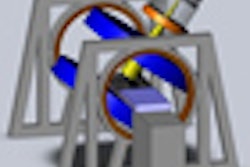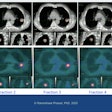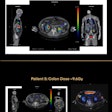Surgical implantation and removal of radioactive seeds is required for brachytherapy cancer treatment. Use of polymers may eliminate the need for this invasive procedure when treating solid tumors, according to data published in the November 15 issue of Cancer Research.
Injection of radioactive polymers into growing tumors in mice substantially delayed tumor growth, reported researchers from Duke University. In fact, tumors were eradicated in two-thirds of the mice by a single injection. All mice had been transplanted with either a human head and neck cancer cell line or a human prostate cancer cell line.
The polymer solution is radiolabeled with iodine-131 and spontaneously assembles into radioactive seeds after injection into a tumor. These polymer seeds degrade after the radiation is exhausted and therefore do not need to be surgically removed, according to lead author Dr. Wenge Liu, PhD, an associate research professor of biomedical engineering (Cancer Research, November 15, 2012, Vol. 72:22, pp. 5956-5965).
The approach provides a useful alternative to current brachytherapy treatment, according to Liu. If the treatment is approved for use in humans, it may ultimately prove safer by exposing tumor cells to high levels of radiation, while minimizing side effects from exposing healthy tissue to radiation.
"This new approach to treating solid tumors was highly efficacious and minimally toxic to healthy tissue in a mouse model," he said.



















